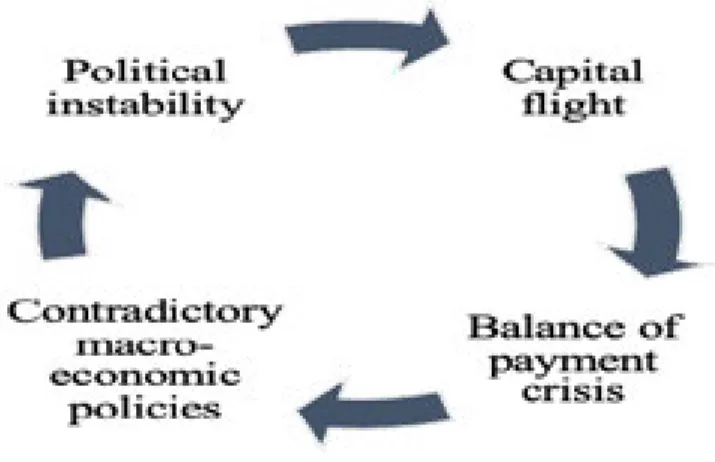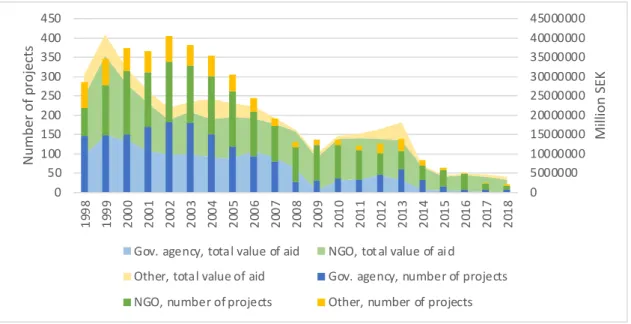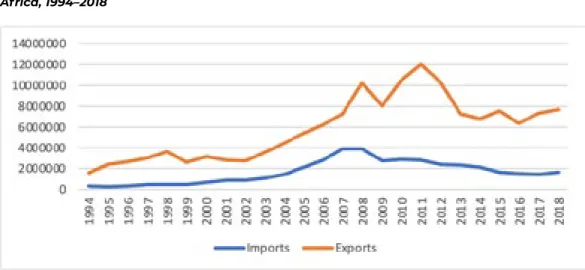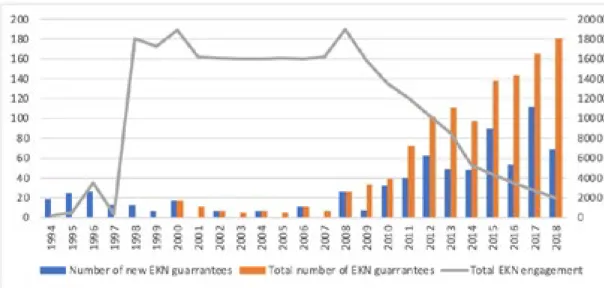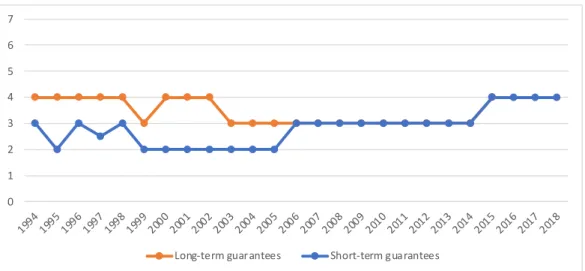Jo-Ansie van Wyk is professor of international relations in the department of political sciences at the University of South Africa. It is often said that the Republic of South Africa and the Kingdom of Sweden share a special relationship.
OPINION
Direct support for the ANC's civilian activities was a small part of Sweden's support under the title. We also have the largest cooperation between our two countries, recently renewed in the form of the South African Swedish University Forum.
A Historical Overview
Sweden's relations with South African liberation movements date back to the 1960s, when the Swedish anti-apartheid movement was born. 400 million dollars in financial support, Sweden became the first Western country to give official political support to the anti-apartheid movement.
PEER REVIEW
80,000 for the United Nations Education and Training Programs for Southern Africa; $68,000 to the United Nations Trust Fund for Southern Africa;. This delay corresponds to the fact that it was not until November 1974 that the AGC recognized the ANC as "the leading liberation movement in South Africa" (Sellström, 2002b: 398).
SPECIAL EDITION
Available at: www.jstor.org/stable/al.sff.document.nuun1976_43 United Nations Center Against Apartheid. Available at: www.jstor.org/stable/al.sff.document.nuun1989_02 United Nations Center Against Apartheid.
Trust, Power, and Partnership
In This article examines the legacy of the Swedish anti-apartheid movement on their post-apartheid bilateral economic relationship with South Africa. Through an analytical framework built on embeddedness theory and soft power, the article examines the impact of the trust and influence resulting from Sweden's support of the South African liberation movement. The article finds that the deep trust and influence established during apartheid had a major impact on the early cooperation between Sweden and post-apartheid South Africa, which focused on strengthening the institutional basis for future cooperation. expanding side-by-side with a transitional humanitarian aid. program.
It is further found that the relationship has cooled over time, which is attributed to the change in context. Personal ties have faded as politicians have been replaced, and the discontinuation of the Swedish financial aid program in 2013 meant a significant drop in funding for their institutional cooperation. Trade became the focus of the economic partnership as bilateral development cooperation gradually reduced in size.
The results show that the post-apartheid attitude was imprinted with unspoken gratitude from the South African side. The ensuing Swedish influence was found to have waned over time, and there are indications that irregularities found after the controversial military deal in 1999 contributed to this. has decreased over time.
A Study of the Evolution of Sweden’s Bilateral Economic
Gripen and Corruption
Much of the criticism relates to how Sweden used the personal and historical relationships established by the anti-apartheid movement to tip the scales in favor of SAAB's bid (Coetzee. In fact, Resare finds that they received the lowest ranking in the entire procurement and that, despite many changes made in favor of the Swedish bid, they ultimately won on a purely technical basis.The interviewees were asked to give their opinion on the impact that the JAS agreement had on bilateral economic relations between Sweden and South Africa.
According to interviewee 3, "the constant publications exposing corruption in the JAS-Gripen deal [...] probably softened the relationship somewhat.". It does not affect everyday economic relations, but the legacy of the business is still present in South Africa. The planes are still there and some of the companies that were part of the compensation deal are still there.
It finds that the invitation to Sweden to collaborate on sensitive reforms in the early years of the post-apartheid era is an indication of the deep trust that had been established from decades of support and partnership, and the political influence Sweden gained through their moral activism . As bilateral development cooperation gradually decreased in size, trade became the focus of the economic partnership. It is financed by a premium based on EKN's risk assessment of the country and the partner company, which is paid by the Swedish exporter.
South Africa, Sweden, and Good International Citizenship
The article finds that both Sweden and democratic South Africa demonstrate elements of good international citizenship. However, in quantitative terms, South Africa's material capabilities fall short of the conventional middle power range. This phrase, and the intention behind it, appears in many of South Africa's foreign policy documents.
Tilgængelig på: www.issafrica.org/iss-today/new-middle-power-country-partners-for-south-africa. Dealing with ‘Deviants’: Testing South Africa’s Good International Citizenship.’ The Strategic Review for Southern Africa, 1. november. The Weak Domestic Base of South Africa’s Good Global Citizenship.’ South African Journal of International Affairs.
Democracy is increasingly under pressure in South Africa and elsewhere in Africa.' ACCORD, 20 December [online]. Gold star or bottom of the class: Is South Africa a good international citizen?' South African Journal of International Affairs. South Africa's successes in forming alliances for multilateralism in the United Nations Security Council.' January 21.
South Africa and Sweden in the UN Security Council
At the head of South Africa's last Council mandate, in the United Nations (UN) General Assembly vote, 95% of members supported the Republic's bid to join the Council for a third time (Brosig, 2018 ). South Africa and Sweden provide expertise in support of two important thematic focuses of the UNSC, namely African peace and security and the Council's relationship with the AU and the women, peace and security (WPS) agenda. South Africa was instrumental in using its Presidency of the UNSC in January 2012 to emphasize the need to strengthen relations between the UN and regional organizations, in particular the AU, in maintaining international peace and security.
Unfortunately, South Africa was unable to make progress on the peacekeeping finance debate during its third term. South Africa was more successful, albeit with difficulty, in its interests on the WPS agenda. South Africa engaged other African members of the Council in its APSA work (Graham, 2022).
This short article explores the recent memberships of Sweden (2017-18) and South Africa (2019-20) in the UN Security Council. In this article, reference to South Africa will be used to represent the government of the Republic of South Africa. Media statement: South Africa completes its two-year term as an elected member of the UN Security Council.’ 1 January.
A Growing Embrace of Feminist Foreign Policy?
The fourth part of the contribution reflects on the prospects for a feminist foreign policy for South Africa. All but one (internalization and the exercise of a feminist foreign policy in government) of Sweden's objectives converge with South Africa's stated foreign policy objectives and principles. This has characterized Sweden's notion of a feminist foreign policy as an approach to South Africa's foreign policy and the status of women therein.
Convergences have been found, but South Africa remains hesitant to adopt the idea of a feminist foreign policy. However, South Africa's growing embrace of aspects of what a feminist foreign policy entails has been identified. Post-apartheid South Africa's growing embrace of elements associated with Sweden's formulation and practice of feminist foreign policy is evident.
Women, Gender and South African Foreign Policy: The Need for an Inclusive Approach to Foreign Policy Decision-Making. Foreign Policy Review: A Strategic Reflection and Critical Appraisal of South Africa's Foreign Policy Orientation and Implementation.' Press conference, April 17. Women and the Making of South African Foreign Policy.’ In: The Democratization of Foreign Policy: Lessons from South Africa.
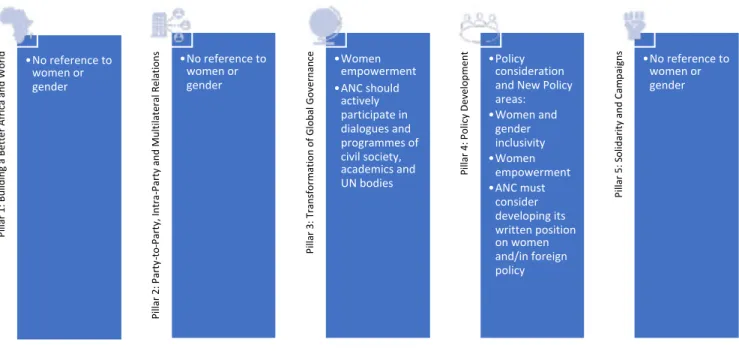
Exploring Sweden and South Africa’s Responses to Mass Migration during the
The article provides a historical perspective of migration between Sweden and South Africa and examines their ongoing migration policy debates. This support was met with controversy, and most of the Scandinavians living in South Africa were opposed to the corps at the time. South Africa places a strong emphasis on gender equality and has one of the highest numbers of women represented in parliament.
The Committee on the Elimination of Discrimination against Women (CEDAW) commended South Africa for it. This article has examined the current political controversies regarding migration in Sweden and South Africa. Migration and Employment in South Africa: Statistical Analysis of the Migration Module of the Quarterly Labor Force Survey, Third Quarter 2012.' International Labor Organization [online].
Tilgængelig på: www.dailymaverick.co.za/opinionista a-shared-victory-and-joint-future-south-africa-and-sweden/. How South Africa is Denying Refugees their Rights: What- Needs to Change.’ The Conversation [online]. Obstetric Violence and Colonial Conditioning in South Africa’s Reproductive Health System.’ Afhandling (PhD): University of Leeds.
BOOK REVIEW
The book provides a comprehensive overview of Sweden's foreign policy during the period 1809 to 2019, and offers nuanced perspectives and analyzes of the constantly changing relationship between the country and its environment. In fact, the report on Swedish defense and its industry during the eventful years from 1990 was unexpectedly extended. Even an overview of the years before the years formally covered in the book is included.
The choice to officially start the book in 1809, 'year zero', makes sense as the author explains that it was a year of great national trauma that created something of a re-start for Sweden, establishing a new political order – which was followed by a new foreign policy. The author went through an impressive amount of material in writing the book: articles, reports, government bills, statements and election results, to name a few examples. These accounts range from explaining how the failed Scandinavian defense union and the failure of the UN after the war led to the policy of non-participation, to the decisions that led the country to closer European cooperation and later to membership in the European Union.
Although it impressively masters the art of being informative and engaging at the same time, the book lacks a certain perspective on the present. Not using the vast knowledge of foreign policy history to make sense of, and possibly explain, current events, such as Sweden's entry into NATO, is a lost opportunity. This would be compatible with the layout, as the book's focus is mostly on
